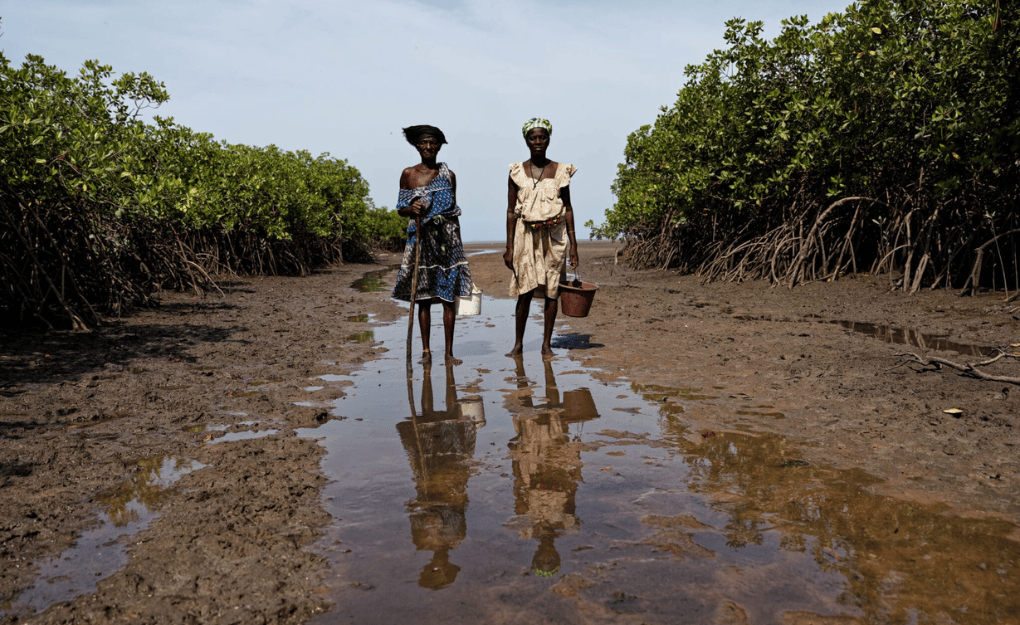Africa Wetlands Degradation is emerging as one of the most pressing environmental challenges of our time. According to the 2025 Global Wetland Outlook (GWO) report, the continent’s wetlands are degrading at an alarming rate, putting millions of lives and countless ecosystems at risk. These wetlands, often referred to as “the kidneys of the Earth,” are vital for water purification, biodiversity, agriculture, and flood regulation. Yet, due to rampant urbanisation, industrial expansion, and poor policy implementation, they are vanishing faster than they can be restored.
Current State of African Wetlands
The GWO 2025 report identifies Africa as one of the regions experiencing the fastest decline in wetland health. Wetlands across South Africa, Nigeria, Kenya, and parts of the Sahel are deteriorating rapidly. Unlike in Europe and North America, where wetland restoration has seen moderate success, Africa’s wetland systems are losing resilience. A key concern is that much of the damage remains undetected due to a lack of widespread field monitoring and data collection.
In South Africa, for instance, the rate of degradation now outpaces ongoing conservation efforts. This imbalance means that once-functioning wetlands are becoming ecological wastelands, no longer able to support local biodiversity or community needs.
Key Drivers of Wetland Loss
Urbanisation is perhaps the most visible factor driving Africa wetlands degradation. Expanding cities like Lagos, Nairobi, and Johannesburg continue to encroach upon wetland zones. Industrialisation, poorly planned infrastructure projects, and road construction cut through critical water pathways, reducing the natural flow and water-retention capabilities of wetlands.
The economic status of nations also plays a role. Many lower-income countries in Africa lack the financial or technical resources to prioritize wetland conservation. As a result, development often comes at the expense of environmental sustainability.
This trend is not isolated to Africa. Similar patterns of degradation are seen in Latin America and parts of Southeast Asia. However, the stakes are particularly high in Africa, where rural populations are deeply dependent on the ecosystem services wetlands provide.
Economic and Ecological Importance
Wetlands cover only around 6% of the Earth’s surface, yet they deliver ecosystem services valued at 7.5% of global GDP. In Africa alone, wetlands contributed an estimated US$825.7 billion to ecosystem services in 2023, according to the GWO report. These services include water purification, crop irrigation, fisheries support, carbon sequestration, and natural flood defenses.
Projects like the Kafue Flats restoration in Zambia offer a glimpse into what successful wetland restoration can achieve. Through targeted community engagement and international funding, this project has enhanced fish stocks, improved local agriculture, and even boosted tourism—demonstrating that wetlands are not just ecological assets but also economic engines.
Impact on Climate and Communities
Wetland loss is deeply entwined with broader global crises such as climate change, food insecurity, and water scarcity. Wetlands store vast amounts of carbon. When destroyed, they release greenhouse gases, exacerbating global warming. Their loss also eliminates natural buffers against climate-induced disasters like floods and droughts.
For many African communities, wetlands serve as lifelines. They provide clean water, fertile lands, and resources for fishing and foraging. As wetlands disappear, so too do the cultural and economic foundations of rural societies. Increased vulnerability to food and water shortages, displacement, and economic hardship are already visible in areas hit hardest by wetland degradation.
Policy and Conservation Efforts
The Global Wetland Outlook calls for urgent investments in conservation and restoration. Solutions must be holistic and community-driven. Governments are urged to integrate wetlands into national economic planning, and international donors must prioritize financing mechanisms for wetland restoration.
The upcoming Ramsar Convention COP15 in Zimbabwe presents a critical opportunity to forge stronger global commitments. It is expected to highlight Africa wetlands degradation and create pathways for increased cooperation, innovative funding, and stricter protection policies.
Additionally, cross-border collaboration is crucial. Many wetland systems span multiple countries, requiring joint management frameworks and data-sharing platforms. Indigenous knowledge must also be central to conservation efforts, as local communities have historically coexisted with and protected these ecosystems.
Conclusion
The crisis of Africa Wetlands Degradation is not just an environmental issue—it’s a threat to human survival, economic stability, and climate resilience. The window for action is rapidly closing. However, with strategic investment, collaborative governance, and public awareness, it is still possible to reverse the damage and secure a future where Africa’s wetlands continue to support life and livelihoods across the continent.




